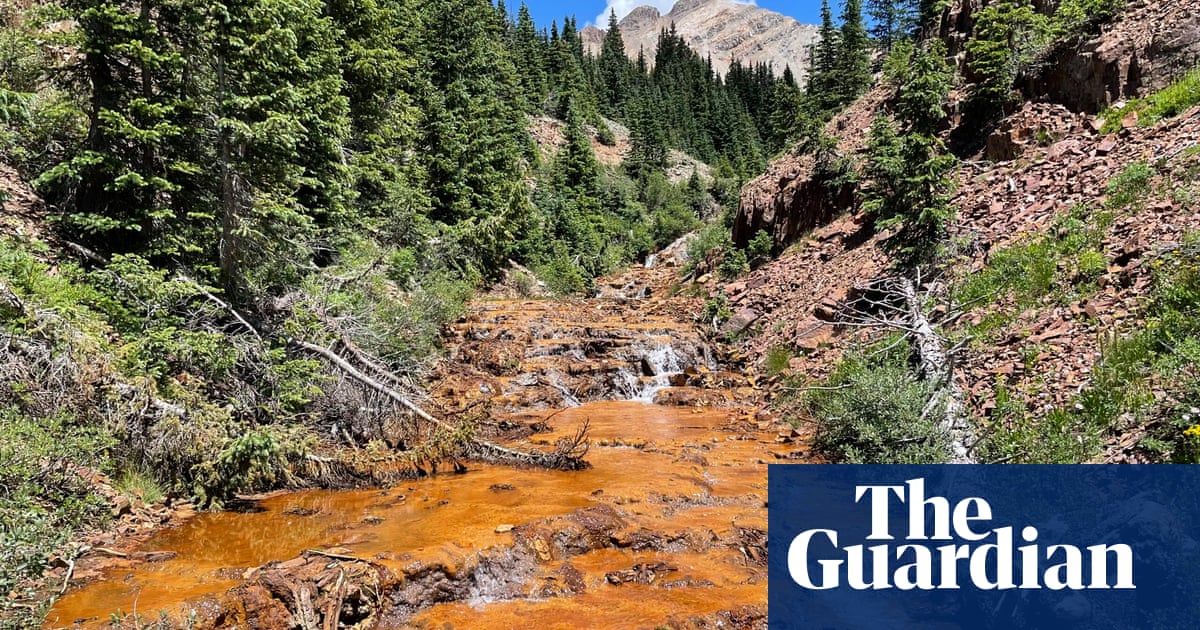Mountain rivers in the US state of Colorado are going rusty and the warming climate is to blame, according to research. An increase in toxic heavy metals has also been observed in Arctic streams, leading to concern that this phenomenon may be more widespread.
From the Andes to the European Alps, researchers have seen an increase in heavy metals in mountain streams in recent decades, but it has not been clear what is driving the trend. Analysing 40 years of water chemistry data from 22 of Colorado’s mountain streams, researchers found that the concentrations of copper, zinc and sulphate had doubled over the past 30 years. The study, published in Water Resources Research, found that drier weather and reduced stream flow accounted for about half of the rise, but the remaining increase was most likely due to thawing of underground ice, exposing more rocks to groundwater and releasing the metals contained within them.
after newsletter promotion
Dilution of the metal-rich water means the contamination is unlikely to be a significant concern by the time it reaches cities and fields further downstream, but for mountain communities the water may need additional treatment to make it safe. And as the climate continues to warm the problem is likely to accelerate and affect a greater number of communities around the world.







